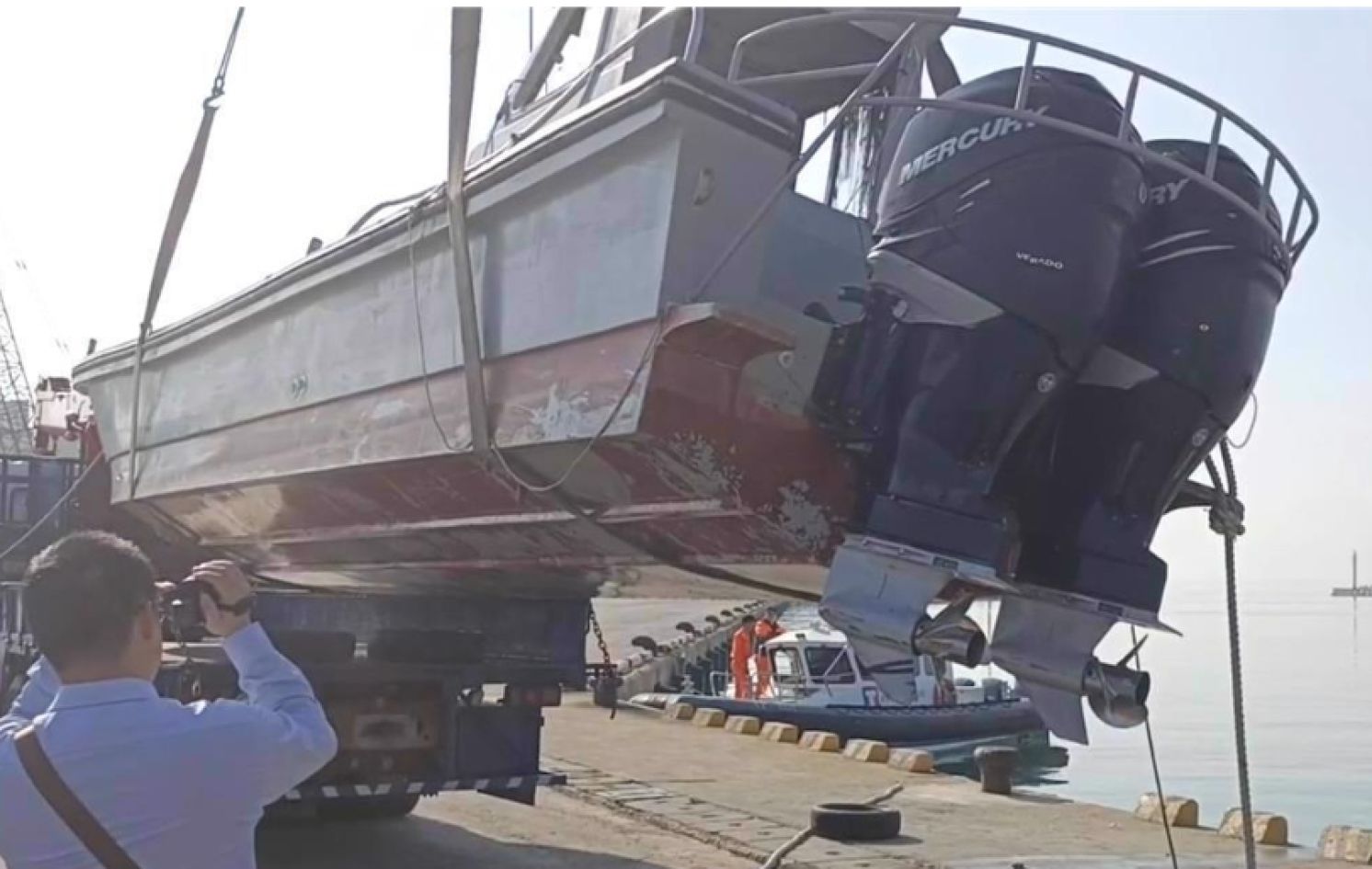
DPP Ignorance Renders Incident Bitter Fruit to Swallow
By Sun Yang-ming
United Daily News, February 24, 2024
A Coast Guard vessel of Taiwan rammed a mainland Chinese fishing boat on February 14, in the fishing restricted zone near Kinmen, resulting in the unfortunate drowning of two mainland fishermen. Since the incident, tensions between the two sides have spiraled. Eventually, China officially broke the tacit agreement of the existence of a so-called "fishing restricted zone" in the waters near Kinmen, continuously dispatching government vessels and even boarding Taiwan’s tourist boats for inspections. The situation has escalated to the point where even the United States has stepped in, urging both sides to exercise restraint.
The situation that has unfolded so far is clear: the Democratic Progressive Party (DPP) administration’s handling has been a complete mess. It is known that any decision-making revolves around the judgments of facts, values, and consequences. Yet, from the onset of this incident until now, the DPP administration has been unable to grasp the facts entirely, with its statements changing every day. It appears that they are merely trying to manipulate the situation with a populist agenda. They have almost completely disregarded the loss of two lives, and even contemplated using this incident to force dialogue with Beijing. The way that the DPP administration handled this incident is just displaying its quasi-ignorance of the potential consequences.
Effectiveness of U.S. Appeals to Be Seen, Balance in Cross-Strait Relations Invariably Shifted
Such a situation is caused by the ignorance of the DPP administration about the possible consequences, that is, the ignorance of the style of policies related to Chinese President Xi Jinping.
Since Mr. Xi took office, there have been at least two similar issues that can be used as references to understand his policy style. In 2012, the Japanese government under Prime Minister Yoshihiko Noda caused a major controversy between Japan and China with their policy of “nationalization of the Diaoyutai Islands.” The timing was prior to China’s 18th National Party Congress. At that time, before stepping down, General Secretary Hu Jintao broke the convention and appointed Mr. Xi, who had not yet succeeded him, as the leader of the “leading group for maritime rights protection” to handle this case. Initially, Beijing hoped that Japan would stop nationalization, but Japan disagreed. Beijing then stepped back and requested Japan to acknowledge that there was a dispute over the sovereignty of the Diaoyutai Islands. However, Japan still disagreed. As a result, Beijing directly dispatched government vessels to patrol the waters around the Diaoyutai Islands, resulting in both mainland China and Japan having government vessels in the disputed waters, forming substantive joint jurisdiction in the Diaoyutai Island waters.
Subsequently, Japan expressed willingness to compromise and return to recognizing the Diaoyutai Islands as disputed waters. Yet Beijing blatantly refused, whereas Japan was unwilling and unable to use force. This is the main reason why there is a regular presence of Chinese vessels in the Diaoyutai Islands waters today. This is the beginning of Mr. Xi's style of leadership emerging in the international arena.
In June 2016, the ruling of the South China Sea Arbitration brought by the Philippines and supported by the United States and Japan was rendered; in July 2016, the U.S. Pacific Command fleet entered the South China Sea in large numbers for military exercises, including two aircraft carrier battle groups. China's response was to send almost half of its naval fleets to the South China Sea and even put the four southern regions on alert; among them, they also demonstrated the Dongfeng-21D specifically designed to counter aircraft carriers, leading to a significant standoff between the two sides. Eventually, with neither side resorting to force, the U.S. military withdrew first. Yet Beijing's subsequent response was to accelerate its island-building activities in the South China Sea.
At that time, there were concerns from the general public about the frequent presence of the U.S. military in the South China Sea. Beijing then used this as a reason to further carry out island-building activities in the South China Sea.
These two cases mentioned above are very typical of Mr. Xi's decision-making style. From these cases, one can clearly anticipate mainland China’s response to this incident, which makes it an even heavier blow to the DPP administration. Now, the mainland no longer acknowledges the previous tacit agreement on “fishing restricted zone,” but unilaterally extends its “legal definition of internal jurisdiction.” This incident has caused the continuous dispatch of government vessels into the waters and the boarding of Taiwan’s tourist ships for inspection. It can be confirmed that such actions by Beijing in this area are likely to become a new normal.
The changes in the situation in the waters around Kinmen are the bitter fruits of the ignorance and provocation of the DPP administration for a long time.